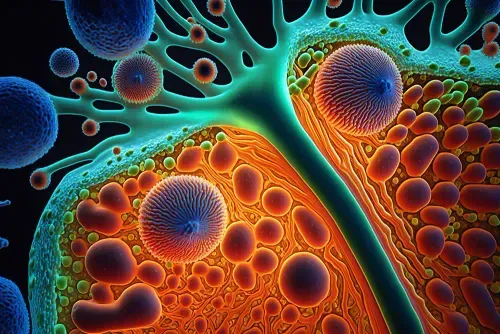Patients with chronic kidney failure have had to live with dialysis treatments for decades, but a groundbreaking study from the University of California, San Francisco and Vanderbilt University is bringing new hope. Instead of relying on expensive and complex dialysis machines, these scientists have developed a potential alternative: an artificial kidney using nanotechnology.
This technology uses silicon nano-filters to mimic the main functions of the human kidney, helping to remove toxins, salts, and waste from the blood without the need for pumps or electricity. Instead, the device operates entirely based on the patient’s blood pressure. This not only makes the artificial kidney more compact but also minimizes the risks associated with reliance on electrical power, opening up prospects for a safer and more sustainable treatment method.
“We are developing a device that can operate without an external power source, relying solely on blood pressure to function. This marks a significant step in creating an effective artificial kidney that doesn’t require the complexity of traditional devices,” – the research team at the University of California, San Francisco said in a report published in 2024.

The experimental model of this artificial kidney is the size of a drinking glass, but it has proven capable of removing toxins and waste in a manner similar to a real kidney. A unique feature of this device is that it does not need to replace the patient’s natural kidney. The artificial kidney will be implanted near the patient’s real kidney, helping to maintain the function of the organ while the artificial kidney performs the filtration process.
“This is a major advancement compared to current treatment methods. This device could reduce reliance on dialysis machines, improving the quality of life for patients,” the research team shared. The silicon nano-filters have uniformly small pores, making them more effective at removing waste and toxins, while also helping the body maintain fluid and electrolyte balance.
“With financial support from organizations like the FDA and the Quantum Program of the National Institute of Biomedical Imaging and Bioengineering, we hope to conduct clinical trials and bring this artificial kidney into application within the next decade,” – the researchers added.
This project has received particular attention from the U.S. Food and Drug Administration (FDA), as it was included in the Expedited Access Pathway to accelerate the development of medical devices that can save lives or treat serious conditions. The researchers have received 6 million USD from the Quantum Program to continue the development of this device, bringing hope to millions of kidney failure patients around the world.
With its ability to operate independently and without the need for an external power source, this artificial kidney could become an effective treatment solution, helping kidney failure patients escape the burden of regular dialysis. Although the project still needs to undergo clinical trials and improvements, the initial progress has demonstrated the immense potential of nanotechnology in treating kidney failure and improving the quality of life for millions of patients.


HPX24h > Science > New Artificial Kidney via Nanotechnology: A Revolutionary Alternative to Dialysis
Top Reads from This Category
Science
Turning Dreams On and Off with Brain-Control Technology: A Breakthrough in Sleep Researc
Science
Mind-Controlled Prosthetics: A Groundbreaking Advancement in Medicine
Science
Stem Cell Liver Regeneration: A New Solution for Patients with Severe Liver Failure
Science
Science Uncovers the Brain’s Process of Storing New Ideas
Science
Cow-Free Milk: The Food Revolution Shaping Our Future
Science
Turning Snake Venom into Life-Saving Medicine: A Promising New Yeast Cell Technology
Science
Implanting an NFC Chip into the Hand – When Technology and Humans Merge
Discover New Topics
Fitness
HIIT: The Ultimate Shortcut to Efficient and Comprehensive Fitness
Healthy Eating
Essential Nutrition: The Golden Key to Comprehensive Health
Science
New Hope for the Blind: A Breakthrough in Retinal Implant Technology
Health
Fruits That Can Spike Blood Sugar Levels: Be Cautious
Space
The Youngest Recorded Supernova: Unveiling the Mystery of a Star’s Death
Health
The Link Between Daytime Sleep and Alzheimer’s Disease: What You Need to Know
Animals
Decoding Whale Songs: When the Community Joins to Uncover the Ocean’s Mysteries
Parenting Tips
My Child Is Pulling Out Her Hair: How Should I Handle This?
Science
Your Body Is Not the Same as It Was 10 Minutes Ago: The Continuous Regeneration Process of the Human Body
Fitness
Exercise – The Key to Enhancing Your Quality of Life
Parenting Tips
How to Talk to Your Child About Divorce: Helpful Tips for Parents
Science
China’s Hypersonic Jumbo Jet Could Cut Beijing to New York Flight Time to Just 2 Hours
Science
NSF Cuts 168 Jobs – Is the U.S. Scientific Community in Danger?